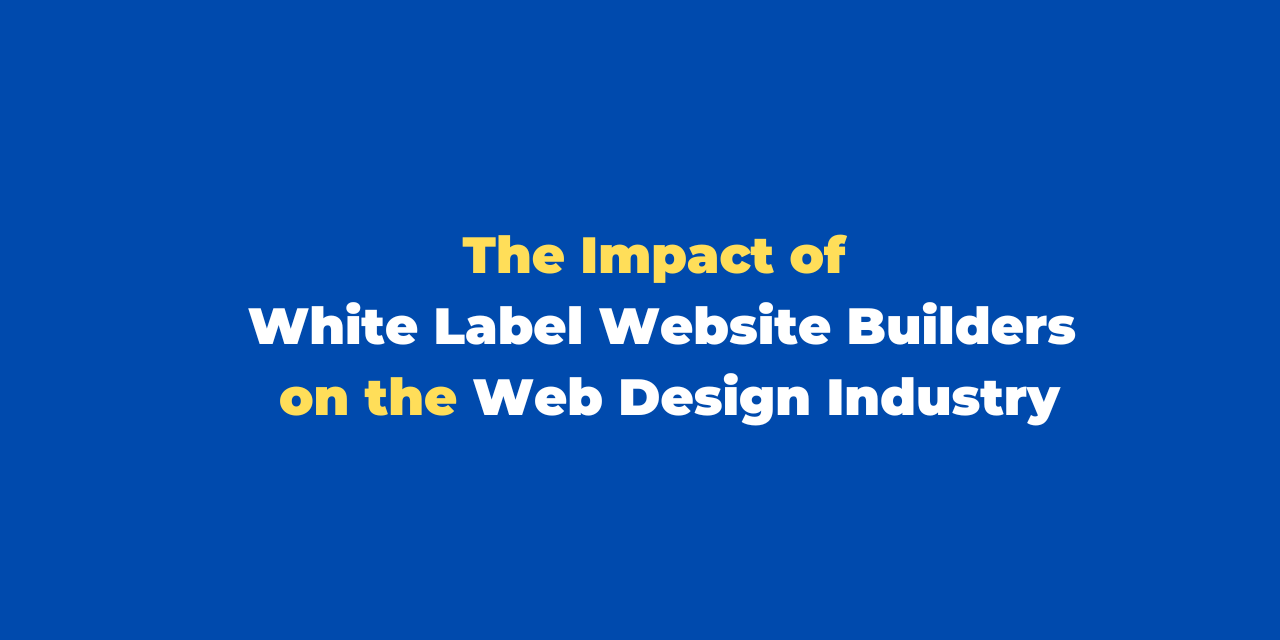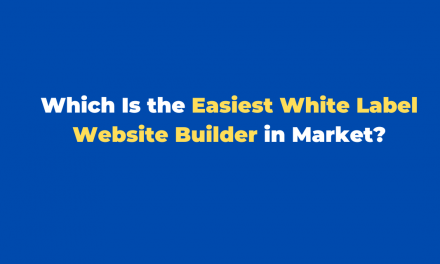Introduction:
The web design industry has experienced significant transformations with the emergence of white label website builders. These powerful platforms have revolutionized the way websites are created, managed, and offered to clients. In this article, we will explore the impact of white label website builders on the web design industry, highlighting the key changes and benefits they bring to designers, agencies, and clients.
Democratization of Web Design:
White label website builders have democratized web design by making it accessible to a broader audience. Previously, creating a professional website required extensive coding knowledge and design skills. However, with white label website builders, individuals and businesses with little to no technical expertise can now design and launch their own websites. This has opened up opportunities for aspiring designers, entrepreneurs, and small businesses who can now easily enter the web design market.
Increased Efficiency and Productivity:
Traditional web design often involved long development cycles and back-and-forth communication between clients and designers. White label website builders streamline the design process by offering user-friendly interfaces, drag-and-drop functionality, and pre-designed templates. These tools empower designers to work more efficiently, reducing the time required to create websites. Additionally, white label website builders provide a centralized platform for managing multiple client projects, improving productivity and organization.
Customization and Branding:
White label website builders offer a wide range of customization options, allowing designers to create unique and branded websites for their clients. Designers can customize colors, fonts, layouts, and other visual elements to align with their clients’ brand identities. This level of customization ensures that each website has a distinct look and feel, enhancing the client’s brand recognition and customer experience. White label website builders enable designers to deliver personalized solutions that meet their clients’ specific requirements.
Cost-Effectiveness and Affordability:
The traditional process of building a website from scratch can be costly, especially for small businesses and startups. White label website builders provide cost-effective alternatives by eliminating the need for extensive custom coding and design work. With a fixed monthly or annual fee, designers can access a comprehensive set of tools and features without incurring additional development costs. This affordability makes web design services more accessible to businesses with limited budgets, expanding the potential client base for designers.
Ongoing Support and Updates:
White label website builders typically provide ongoing support and updates, ensuring that websites remain secure, functional, and up-to-date. Designers and clients can benefit from regular software updates, bug fixes, and new feature releases. This eliminates the need for manual updates and maintenance, allowing designers to focus on creating new websites and delivering additional value to their clients. The availability of support resources, such as documentation, tutorials, and customer service, further enhances the web design experience.
Conclusion:
White label website builders have had a transformative impact on the web design industry. They have democratized web design, enabling individuals and businesses with limited technical expertise to create professional websites. These platforms have increased efficiency and productivity for designers, offering customization options and branding opportunities. Additionally, white label website builders have made web design services more affordable and accessible to businesses of all sizes. With ongoing support and updates, designers can deliver high-quality websites while focusing on business growth. The continued evolution of white label website builders promises to shape the future of web design, making it an exciting time for designers and clients alike.






